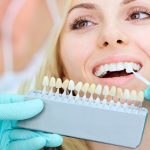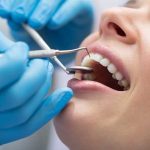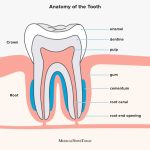5 Surprising Reasons Why Your Teeth Break: Understanding the Causes
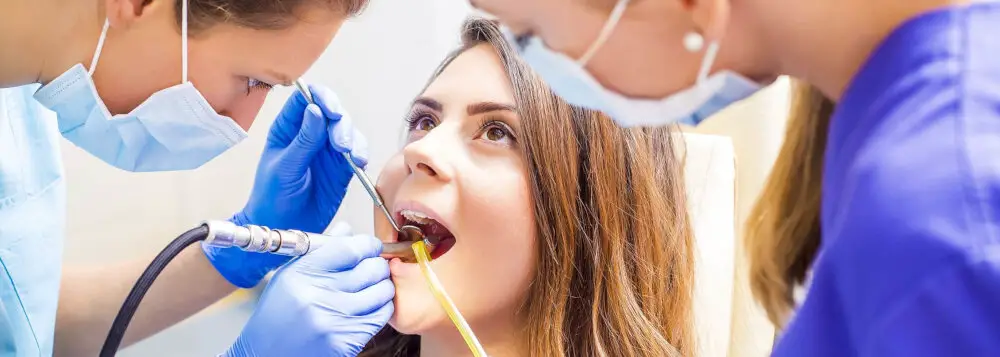
When it comes to oral health, we often focus on the basics: brushing, flossing, and regular dental check-ups. However, even with the most diligent oral hygiene habits, teeth can still break. Teeth are essential for eating, speaking, and smiling, and breaking them can be a painful and costly experience. Understanding the causes of tooth breakage can help you take preventative measures and protect your pearly whites. While some causes of tooth breakage may seem obvious, such as trauma or decay, there are several surprising reasons why your teeth may be at risk. From grinding your teeth at night to biting down on hard objects, there are several everyday habits that can lead to tooth damage. By learning about these causes, you can take steps to protect your teeth from unnecessary wear and tear, and ensure that your smile stays healthy and strong for years to come. So, let’s explore the 5 surprising reasons why your teeth can break and how to prevent them.
Teeth breakage is a common dental issue that can occur due to various reasons. Although teeth are strong and durable, they can still break or chip due to a variety of factors such as biting into hard objects, injury to the mouth, tooth decay, grinding or clenching, and even poor dental hygiene. When a tooth breaks, it can cause discomfort, pain, and sensitivity, and it can also affect a person’s ability to chew and speak properly. Understanding the causes of tooth breakage can help people take preventive measures to maintain their dental health and avoid potential dental emergencies. In this article, we will explore five surprising reasons why teeth may break and how to prevent them.
Understanding the causes of teeth breakage is crucial for maintaining good oral health. Teeth breakage can occur due to various reasons such as poor oral hygiene, teeth grinding, trauma, and weakened teeth. Identifying the underlying cause is essential to prevent further damage and to seek timely treatment. Neglecting the problem can lead to severe pain, infection, and even tooth loss. Moreover, having a comprehensive understanding of the causes of teeth breakage can help individuals adopt preventive measures such as wearing mouth guards, avoiding hard foods, and maintaining good oral hygiene practices. Therefore, it is imperative to stay informed about the potential causes of teeth breakage and take necessary precautions to maintain healthy teeth and gums.
Grinding Teeth
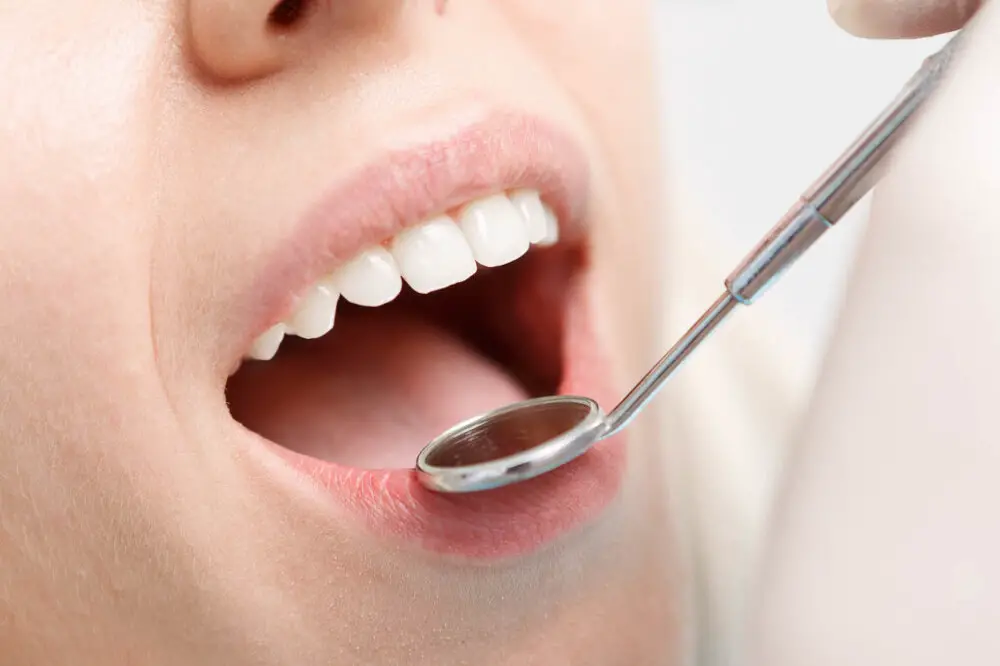
Grinding teeth, also known as bruxism, is a common habit among many people, especially during sleep. This habit refers to the clenching and grinding of teeth, which can cause a range of dental problems, including broken teeth. Grinding teeth can be caused by a variety of factors, including stress, anxiety, and sleep disorders. In some cases, it may also be a side effect of certain medications. While occasional teeth grinding may not cause any harm, persistent grinding can lead to tooth wear, fractures, and even tooth loss. To prevent the damaging effects of grinding teeth, it is important to identify the underlying cause and take appropriate measures to address it. For example, if stress is the primary cause of the habit, finding ways to reduce stress, such as exercise or meditation, may be helpful. In some cases, a dentist may recommend a custom mouthguard to protect the teeth from grinding during sleep. Additionally, avoiding caffeine and alcohol, particularly in the evening, may help reduce the frequency and intensity of teeth grinding. By taking these steps, individuals can prevent the negative effects of grinding teeth and maintain good oral health.
Teeth grinding, also known as bruxism, is a condition in which a person unconsciously clenches, grinds, or gnashes their teeth, often during sleep. This habit can put excessive pressure on the teeth, causing them to wear down, chip, crack, or break. Not only does teeth grinding cause physical damage to the teeth, but it can also lead to jaw pain, headaches, and other discomforts. Over time, the constant grinding can cause the teeth to become sensitive, making it painful to eat or drink hot or cold foods and drinks. Additionally, severe cases of bruxism can lead to tooth loss, requiring extensive dental work to repair the damage.
Grinding teeth, also known as bruxism, is a common condition that can cause a number of dental problems, including breakage. When you grind your teeth, you put an excessive amount of pressure on them, which can cause the enamel to wear down over time. This can lead to small cracks and chips in the teeth, which can eventually result in breakage. Additionally, grinding your teeth can cause the jaw muscles to become sore and fatigued, which can make it more difficult to keep your teeth properly aligned. Over time, this can cause the teeth to shift or become misaligned, which can also increase the risk of breakage. If you suffer from bruxism, it is important to seek treatment to help prevent these issues from developing.
Teeth grinding, also known as bruxism, can lead to tooth breakage and other dental problems. To address this habit, it is important to identify the root cause. Stress and anxiety are common triggers, so practicing relaxation techniques such as deep breathing or meditation may be helpful. Wearing a mouthguard at night can also protect teeth from the pressure of grinding. Avoiding caffeine and alcohol, which can worsen bruxism, and maintaining good sleep hygiene may also be beneficial. In some cases, addressing the alignment of the bite or seeking professional therapy may be necessary to alleviate teeth grinding.
Chewing Hard Foods
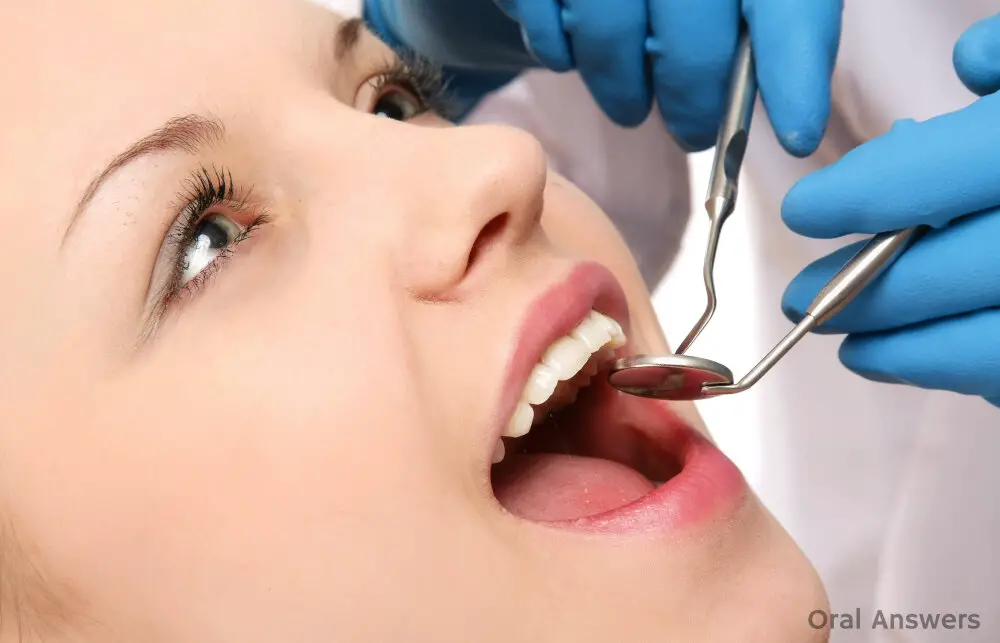
Chewing hard foods is one of the most common reasons why teeth break. Hard foods such as ice, nuts, popcorn kernels, and hard candy can cause cracks or fractures in your teeth. These types of foods can also cause damage to existing dental work such as fillings, crowns, or veneers. When you chew on hard foods, the pressure can cause the dental work to become loose or fall off your tooth entirely. It’s essential to be mindful of the foods you eat and to avoid chewing on hard objects to prevent tooth damage. Furthermore, chewing hard foods can also lead to jaw problems such as temporomandibular joint (TMJ) disorder. TMJ disorder can cause pain and discomfort in the jaw joint and muscles that control jaw movement. When you chew on hard foods, the stress on your jaw joint can exacerbate TMJ disorder symptoms. Therefore, it’s important to seek treatment if you experience jaw pain or discomfort, and to avoid chewing on hard foods to prevent further damage to your teeth and jaw.
Hard foods can have a significant impact on teeth and may even cause them to break. When we chew on hard foods, such as ice, hard candy, or popcorn kernels, we put a lot of pressure on our teeth. Over time, this pressure can weaken our teeth and cause them to crack or break. Additionally, hard foods can cause damage to existing dental work, such as fillings or crowns. It is important to be mindful of the foods we consume and to avoid excessively hard or crunchy foods to protect our teeth from damage and maintain good oral health.
There are various specific foods that can cause breakage in your teeth. Hard candies, for instance, can be a threat to your teeth because of their hardness and tendency to stick to your teeth for a long time. Similarly, ice cubes might seem harmless and refreshing, but they can also cause cracks in your teeth due to their hardness. Popcorn kernels are another common culprit that can cause tooth breakage, especially if you accidentally bite down on an unpopped kernel. Finally, sugary and acidic drinks such as soda and sports drinks can erode your tooth enamel over time, making your teeth more susceptible to breaking. It’s important to be mindful of what you eat and drink to avoid any unnecessary damage to your teeth.
When it comes to maintaining good dental health, the food we consume plays a crucial role. To avoid tooth damage, it is essential to make safer food choices. Firstly, one must avoid sugary and carbonated drinks as they can erode the enamel of the teeth. Secondly, acidic foods like citrus fruits and tomatoes should be consumed in moderation as they can weaken the teeth over time. Thirdly, sticky and chewy foods like caramel and dried fruits should be avoided as they can get stuck between teeth and cause damage. Lastly, one should opt for calcium-rich foods like milk, cheese, and leafy greens, which can strengthen the teeth and prevent decay. By making these simple changes to one’s diet, individuals can maintain strong and healthy teeth for years to come.
Trauma
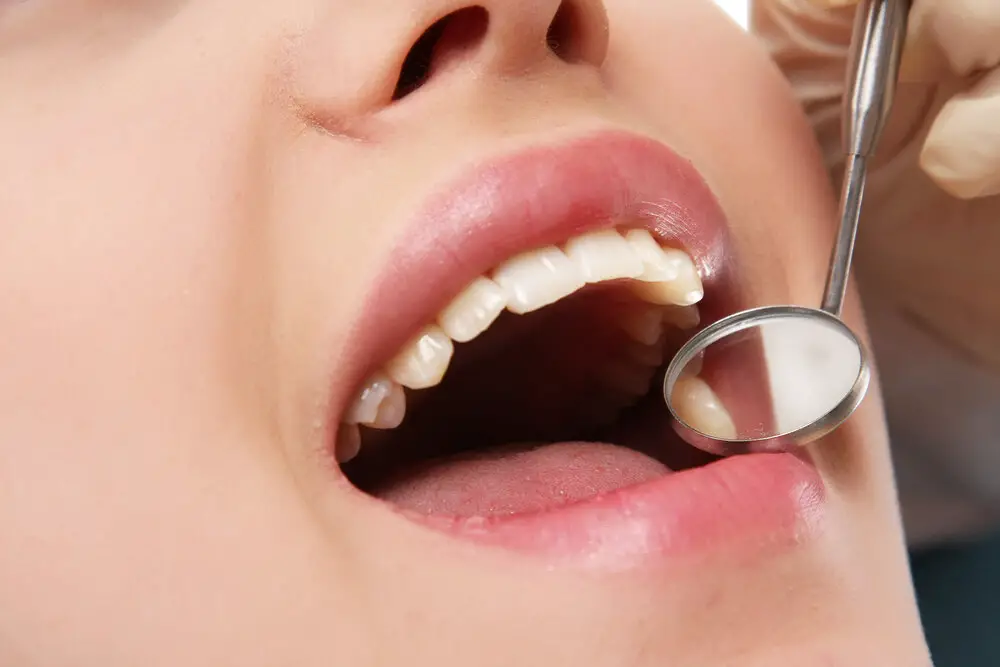
Trauma is one of the most common causes of dental injuries and can occur due to various reasons like accidents, falls, sports injuries, or physical altercations. The severity of dental trauma can range from minor chips and fractures to completely knocked-out teeth. In some cases, trauma can also lead to damage to the surrounding tissues and bones of the mouth. The treatment for dental trauma depends on the severity of the injury and may include restorative procedures like fillings, crowns, or dental implants. It is crucial to seek immediate dental care in case of dental trauma to prevent further damage and ensure proper healing. Dental trauma can have long-term effects on the overall oral health of an individual, including tooth loss, nerve damage, and gum disease. Therefore, it is essential to take preventive measures to protect teeth from trauma, such as using mouthguards during sports activities, avoiding hard and crunchy foods, and maintaining good oral hygiene practices. Regular dental check-ups and cleanings can also help detect any signs of dental trauma early on and prevent further damage. With proper care and attention, individuals can maintain healthy teeth and prevent dental trauma from affecting their overall oral health and well-being.
Physical trauma is one of the most common reasons why teeth break. Teeth are strong, but they are not indestructible. When a person experiences physical trauma, such as a blow to the mouth, the force can cause the tooth to crack or even break. This can happen to people of all ages, but it is more common in children who are active and play sports. Additionally, physical trauma can also damage the supporting structures of the tooth, such as the gums and jawbone. This can lead to tooth loss if not treated promptly. It is important to wear a mouthguard when participating in high-impact sports to prevent physical trauma to the teeth.
Trauma is one of the most common reasons why teeth break. This can occur from a variety of sources, including accidents, falls, sports injuries, and even grinding teeth at night. Teeth can also break due to sudden changes in temperature, such as when eating hot or cold foods. In addition, teeth that have been weakened by decay or cavities are more susceptible to breaking. Finally, certain medications or medical treatments, such as chemotherapy or radiation therapy, can weaken teeth and make them more likely to break. It is important to seek dental treatment as soon as possible if you suspect you have a broken tooth, as untreated damage can lead to infection, pain, and more extensive dental work in the future.
Preventing trauma to your teeth can save you from a lot of pain and expensive dental procedures. Wearing a mouthguard while playing contact sports or participating in any activity that can cause impact to your mouth is one of the best preventive measures. Avoid biting down on hard objects such as ice, popcorn kernels, and hard candy. It’s also important to avoid chewing on non-food items such as pens and pencils. Maintaining good oral hygiene by brushing twice a day and flossing regularly can help reduce the risk of tooth decay and gum disease, both of which can weaken your teeth and make them more susceptible to trauma. Finally, regular dental check-ups can help identify any potential issues early on and prevent them from turning into more serious problems.
Weakened Teeth

Weakened teeth are a common dental issue that can lead to tooth breakage. There are several factors that can weaken teeth, including poor oral hygiene, excessive consumption of acidic foods and drinks, and certain medical conditions. Poor oral hygiene causes plaque buildup on teeth, which can lead to tooth decay and weaken the enamel. This can make teeth more susceptible to breakage, especially if they are subjected to excessive force or pressure. Acidic foods and drinks, such as citrus fruits and soda, can also weaken teeth over time. The acid in these substances can erode the enamel, leaving teeth vulnerable to breakage. Medical conditions such as acid reflux and eating disorders can also weaken teeth. Acid reflux causes stomach acid to travel up into the mouth, where it can erode the enamel on teeth. Eating disorders, such as bulimia, can cause frequent vomiting, which can also lead to enamel erosion. In addition, certain medications can weaken teeth, including those used to treat cancer, osteoporosis, and other conditions. If you have weakened teeth, it is important to see a dentist as soon as possible. Your dentist can recommend treatments to help strengthen your teeth and prevent further damage.
Weakened teeth can significantly increase the likelihood of breakage. This can happen due to a variety of factors, such as tooth decay, gum disease, or even excessive grinding. When teeth are weakened, they may become more brittle and susceptible to cracking or chipping. Additionally, weakened teeth may not be as structurally sound, making them more vulnerable to damage from biting or chewing. Over time, weakened teeth can lead to more serious dental problems, such as tooth loss or infection. It’s important to take steps to strengthen and protect your teeth, such as practicing good oral hygiene habits, avoiding excessive sugar consumption, and wearing a mouthguard if you grind your teeth at night.
Weakened teeth can be caused by several factors, including decay, old fillings, and tooth trauma. Decay occurs when bacteria in the mouth produce acid that erodes the tooth enamel, leading to cavities. Old fillings can also weaken teeth over time, as they may crack or become loose, allowing bacteria to penetrate the tooth and cause decay. Tooth trauma, such as from a sports injury or accident, can also weaken teeth by causing cracks or fractures that compromise the tooth structure. Additionally, certain habits, such as grinding or clenching teeth, can put excessive pressure on teeth and lead to weakening or breakage. Understanding these common causes of weakened teeth can help individuals take steps to protect their dental health and prevent future damage.
Taking care of your teeth is crucial in preventing them from breaking. One way to strengthen teeth is by maintaining good oral hygiene habits, such as brushing twice a day and flossing regularly. It’s also essential to avoid chewing on hard objects such as ice, pens, or fingernails. Eating a healthy diet rich in calcium and vitamin D can also help keep your teeth strong. Additionally, wearing a mouthguard during contact sports or other high-impact activities can protect your teeth from damage. Finally, visiting your dentist regularly for check-ups and cleanings can help identify any potential issues and address them before they become a more significant problem.
Medical Conditions
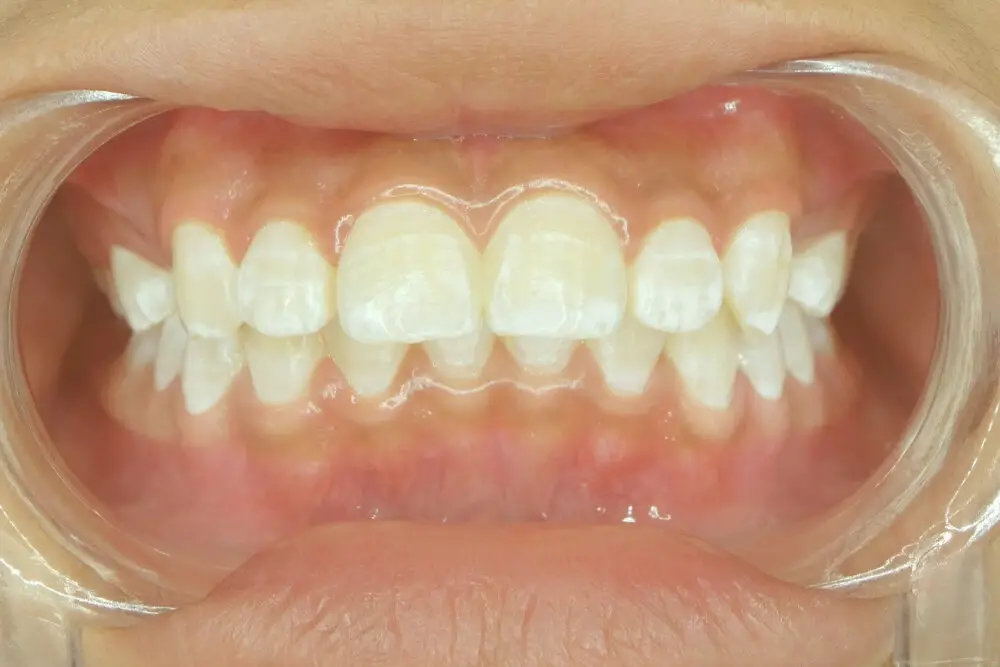
Medical conditions can play a significant role in the weakening of your teeth and ultimately leading to breakage. Conditions such as acid reflux, bulimia, and eating disorders can cause stomach acid to enter the mouth and erode the tooth enamel, leading to brittle teeth and increased risk of fractures. Additionally, conditions that affect bone health, such as osteoporosis, can weaken the jawbone and make it more susceptible to fractures. It is essential to manage these conditions and receive proper treatment to prevent further damage to your oral health. Furthermore, medications for medical conditions can also contribute to tooth breakage. Some medications, such as blood thinners and anti-inflammatory drugs, can affect the body’s ability to clot and increase the risk of bleeding gums and tooth decay. Additionally, medications such as antidepressants and antihistamines can cause dry mouth, leading to a decrease in saliva production, which plays a crucial role in protecting teeth from decay. It is essential to inform your dentist of any medical conditions and medications you are taking to receive proper oral care and prevent further damage to your teeth.
Teeth breakage can occur due to several medical conditions, including bruxism, or teeth grinding, which puts excessive pressure on the teeth. Additionally, acid reflux can erode the enamel, making teeth more susceptible to fractures. Poor oral hygiene can also contribute to tooth decay and the weakening of the tooth structure, increasing the risk of breakage. People with eating disorders, such as bulimia, may experience tooth breakage due to the frequent vomiting, which exposes teeth to stomach acids. Lastly, some medical conditions, such as osteoporosis, can result in bone loss, including in the jawbone, reducing the support for teeth and increasing the likelihood of breakage.
Teeth breaking can be caused by a variety of conditions including acid reflux and eating disorders. Acid reflux, also known as gastroesophageal reflux disease (GERD), can lead to a weakening of tooth enamel, making teeth more susceptible to breaking. Eating disorders, such as bulimia, can also cause tooth damage as frequent vomiting exposes teeth to stomach acid. Other conditions that can contribute to tooth breakage include bruxism (grinding of teeth) and a diet high in sugar and acidic foods. It is important to identify and treat these underlying conditions to prevent further damage to teeth and maintain good oral health.
Several conditions can have a significant impact on the strength and durability of teeth. For instance, acid reflux, which causes stomach acid to flow back up into the mouth, can erode the enamel, making teeth more susceptible to cracking and breaking. Similarly, teeth grinding or bruxism can put immense pressure on the teeth, causing them to weaken and chip over time. Other factors like dry mouth, poor nutrition, and trauma can also cause teeth to break. To manage these conditions and avoid dental damage, patients can take steps like wearing a nightguard for teeth grinding, maintaining a healthy diet, avoiding sugary and acidic foods, and seeking prompt dental treatment for any injuries or underlying health conditions.
Teeth breakage can be a serious issue that can lead to pain, discomfort, and costly dental bills. In the article \5 Surprising Reasons Why Your Teeth Break Understanding the Causes,\ five reasons for teeth breakage are highlighted. Firstly, consuming acidic foods and drinks can erode the enamel, weakening teeth. Secondly, grinding or clenching teeth can cause them to weaken and break. Thirdly, using teeth as tools to open packages or bottles puts them under pressure they cannot handle. Fourthly, biting on hard objects such as ice or pens can cause damage to teeth. Lastly, a lack of calcium and vitamin D can weaken teeth, making them susceptible to breakage. It’s important to be aware of these causes and take preventive measures to protect your teeth.
Taking preventive measures to protect teeth is crucial to avoid tooth damage and breakage. Teeth are essential for everyday tasks such as speaking, eating, and smiling. Therefore, it is essential to keep them healthy and strong. Neglecting oral hygiene and consuming sugary foods and drinks are some of the factors that can lead to tooth decay and enamel erosion, making teeth more vulnerable to breakage. Wearing a mouthguard during sports activities and avoiding bad habits such as teeth grinding and nail-biting are also essential to protect teeth from damage. By taking these preventive measures, individuals can maintain strong and healthy teeth, preventing the need for costly and uncomfortable dental procedures.
If you experience teeth breakage, it is essential to seek dental care immediately. Ignoring the issue can lead to further damage and pain. Teeth breakage can occur due to a variety of reasons, such as tooth decay, gum disease, or trauma. To prevent further complications, it is crucial to schedule an appointment with your dentist as soon as possible. Your dentist will evaluate the extent of the damage and recommend the appropriate treatment plan. Remember, taking care of your teeth is essential for your overall health. Don’t let a broken tooth ruin your smile, seek dental care right away.
Conclusion
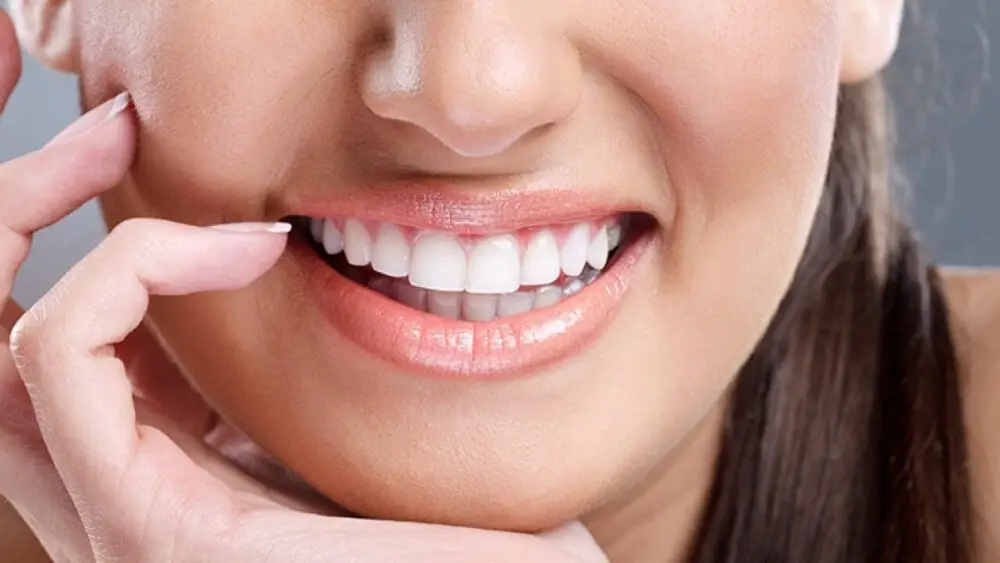
In conclusion, understanding the causes of why teeth break is crucial for maintaining good oral health and preventing future dental problems. While many people may assume that teeth break due to physical trauma or poor dental hygiene, there are actually a variety of surprising reasons why teeth can become weakened and prone to breaking. These include issues such as teeth grinding, acid reflux, and even certain medications. By being aware of these potential causes and taking steps to address them, individuals can help protect their teeth and enjoy a healthy, beautiful smile for years to come.

